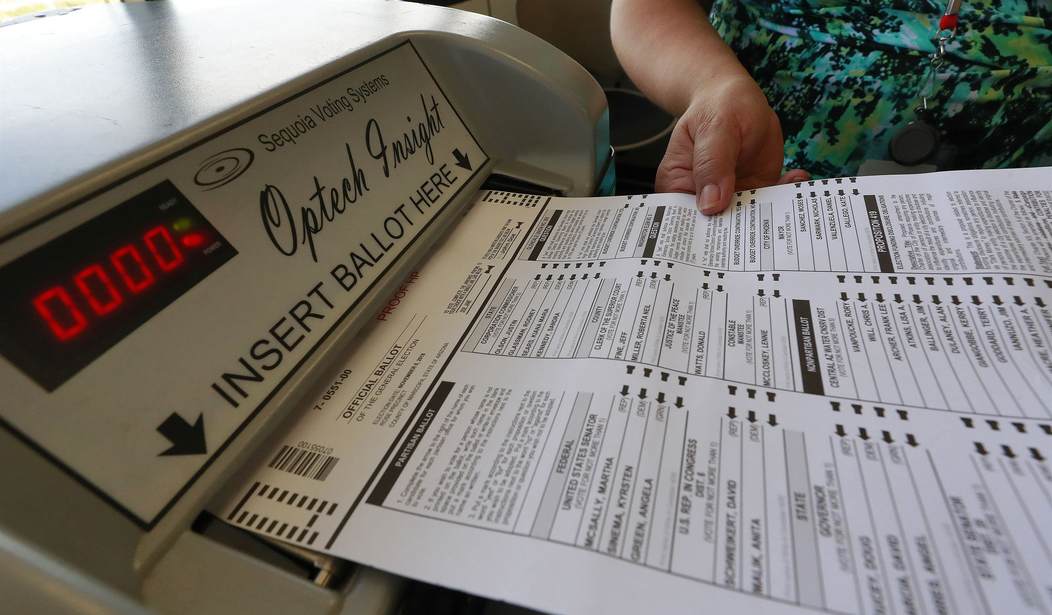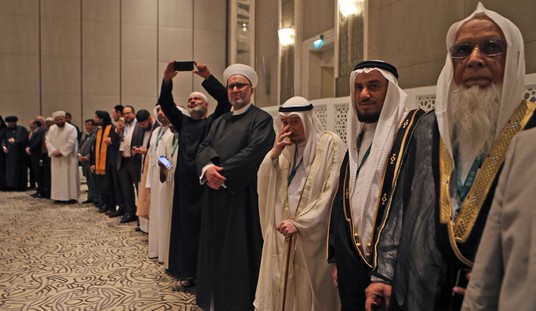Foreign actors trying to influence the U.S. presidential election are engaged in a massive disinformation campaign the likes of which the United States has never had to deal with before.
Russia, China, and Iran are all directing efforts to influence the vote. Both China and Iran deny any attempts to influence the contest.
“The presidential elections are the United States’ domestic affairs. China has no intention and will not interfere in the US election,” the Chinese Embassy said in a statement.
“Having already unequivocally and repeatedly announced, Iran neither has any motive nor intent to interfere in the U.S. election; and, it therefore categorically repudiates such accusations,” read a statement from Iran’s mission to the United Nations.
Well, someone with an Iranian ISP broke into the Trump campaign email account and posted sensitive campaign documents on the JD Vance choice for vice president.
China has a huge government agency and several military units that spend 24 hours a day, 7 days a week, 365 days a year trying to penetrate U.S. networks, public and private.
Of course they're interfering in our election.
Iran's operation is much smaller but, as noted, has achieved some success. It's the Russians who extensively use social media to roil the campaign with false rumors, fake videos, and AI-generated content. Most of it has targeted Kamala Harris and Tim Walz.
Microsoft issued a report on Wednesday indicating that foreign influence campaigns are intensifying ahead of Election Day.
“History has shown that the ability of foreign actors to rapidly distribute deceptive content can significantly impact public perception and electoral outcomes,” Clint Watts, general manager of the Microsoft Threat Analysis Center, said in a news release. “With a particular focus on the 48 hours before and after Election Day, voters, government institutions, candidates and parties must remain vigilant to deceptive and suspicious activity online.”
The report admits that the influence campaigns aren't getting much traction in the U.S., a testament to the discernment of voters who are able to screen out obvious propaganda. One such Russian effort involved a video of a "park ranger" talking about how Harris illegally killed an endangered rhinoceros in Zambia. Another effort targeted Tim Walz with child-sex accusations.
China over the last several months has focused on down-ballot races, and on general efforts to sow distrust and democratic dissatisfaction. A Chinese influence actor widely known as Spamouflage has been using fake social media users to attack down-ballot Republicans who have publicly denounced China, according to Microsoft’s analysts.
Candidates targeted have included Rep. Barry Moore of Alabama, Sen. Marsha Blackburn of Tennessee, and Rep. Michael McCaul of Texas, all of whom are running for reelection, the report said. The group also has attacked Sen. Marco Rubio of Florida.
All four politicians sent emailed statements condemning China’s aggression against American political candidates and its efforts to weaken democracy.
Iran has tried to kill Donald Trump several times. It's no surprise they don't want him to win the election.
"Additionally, the Iranian cyber group Microsoft tracks as Cotton Sandstorm has been actively scouting election-related websites and media outlets, suggesting preparations for more direct influence operations as Election Day nears. The actor’s history of election interference and their pattern of cyber-influence operations underscores the persistent threat they pose," says the report.
There is still a big concern among American officials that none of those three nations will stop at conducting "influence campaigns." The worry is that they will seek to attack our election infrastructure to disrupt or alter the vote count.
Even as Russia, China and Iran try to influence voters, intelligence officials said Tuesday there is still no indication they are plotting significant attacks on election infrastructure as a way to disrupt the outcome.
If they tried, improvements to election security means there is no way they could alter the results, Jen Easterly, director of the U.S. Cybersecurity and Infrastructure Security Agency, told The Associated Press earlier this month.
Intelligence officials on Tuesday also warned that Russia and Iran may try to encourage violent protests in the U.S. after next month’s election, setting the stage for potential complications in the post-election period.
Loca election systems are more at risk of being penetrated, but I wish I had Ms. Easterly's confidence.










